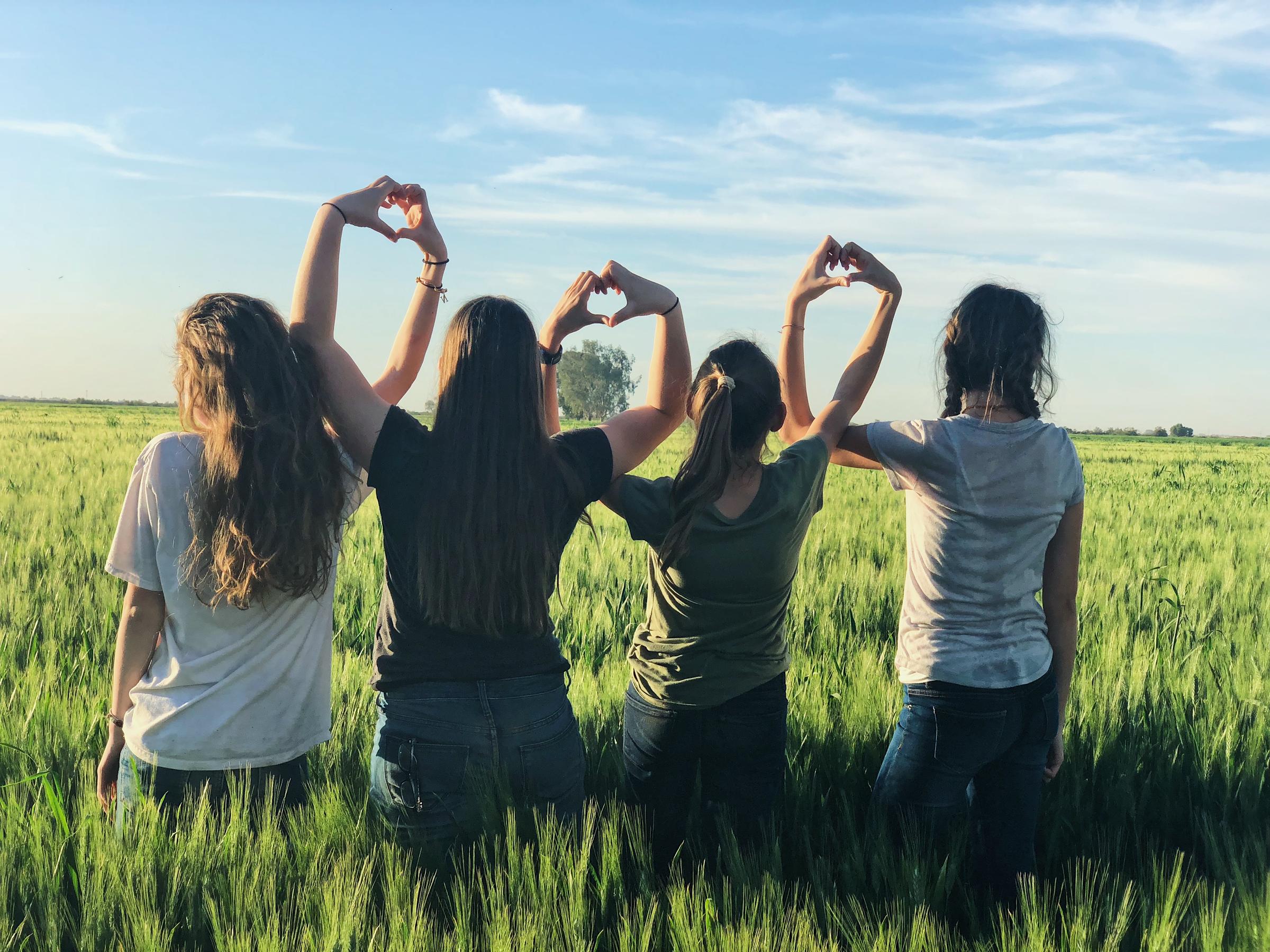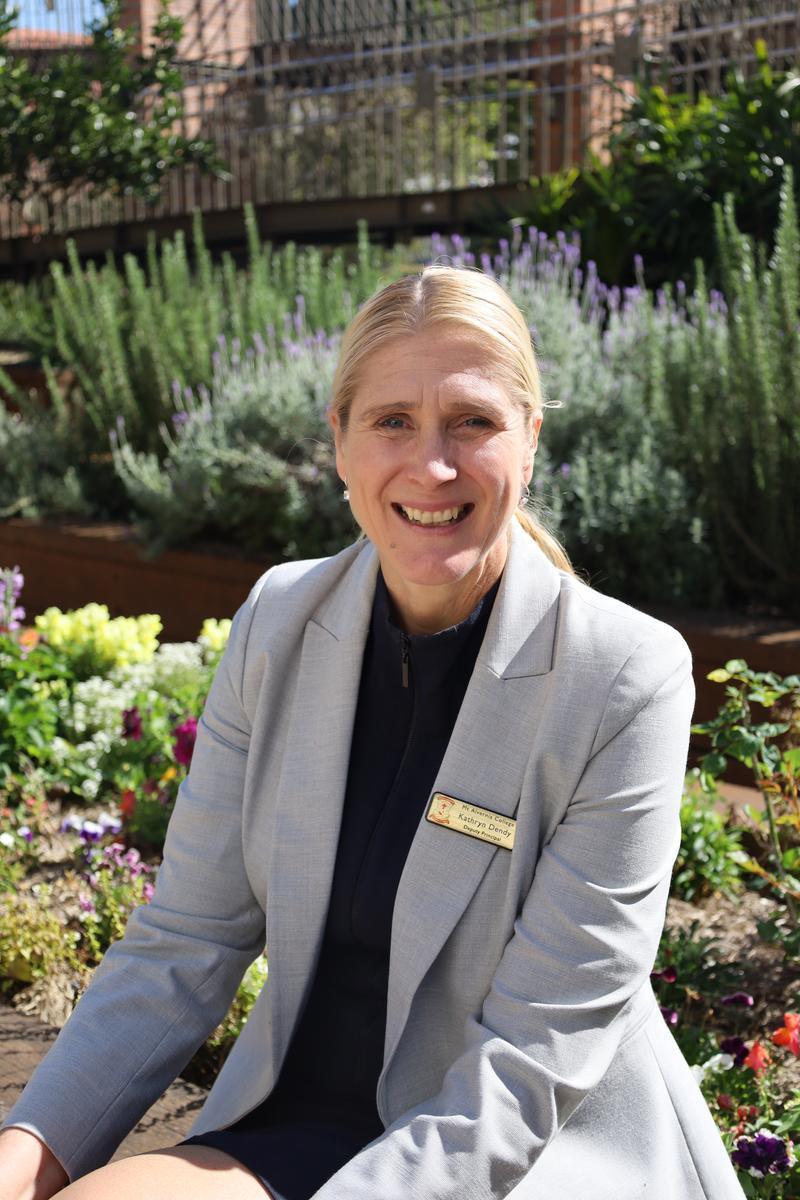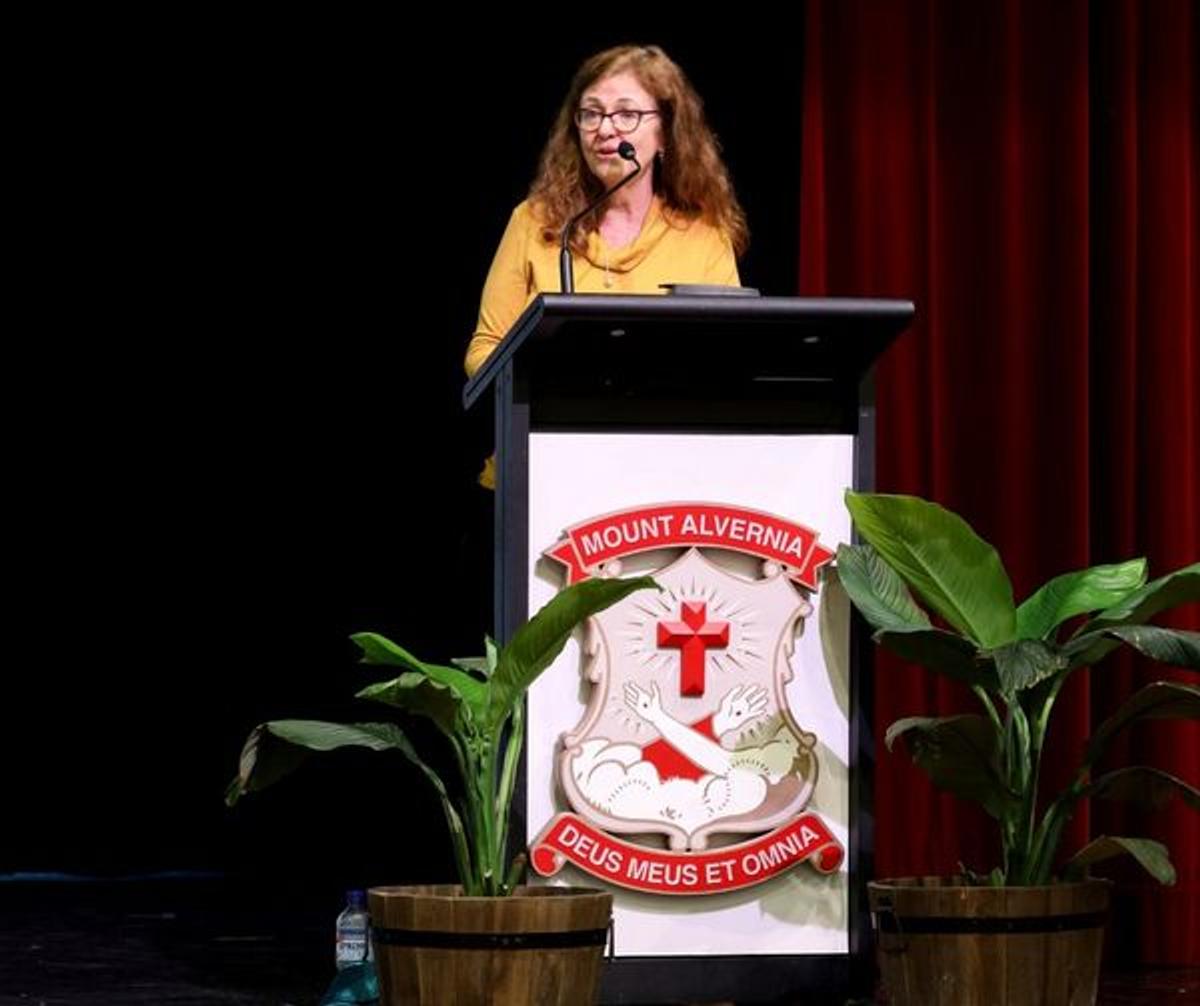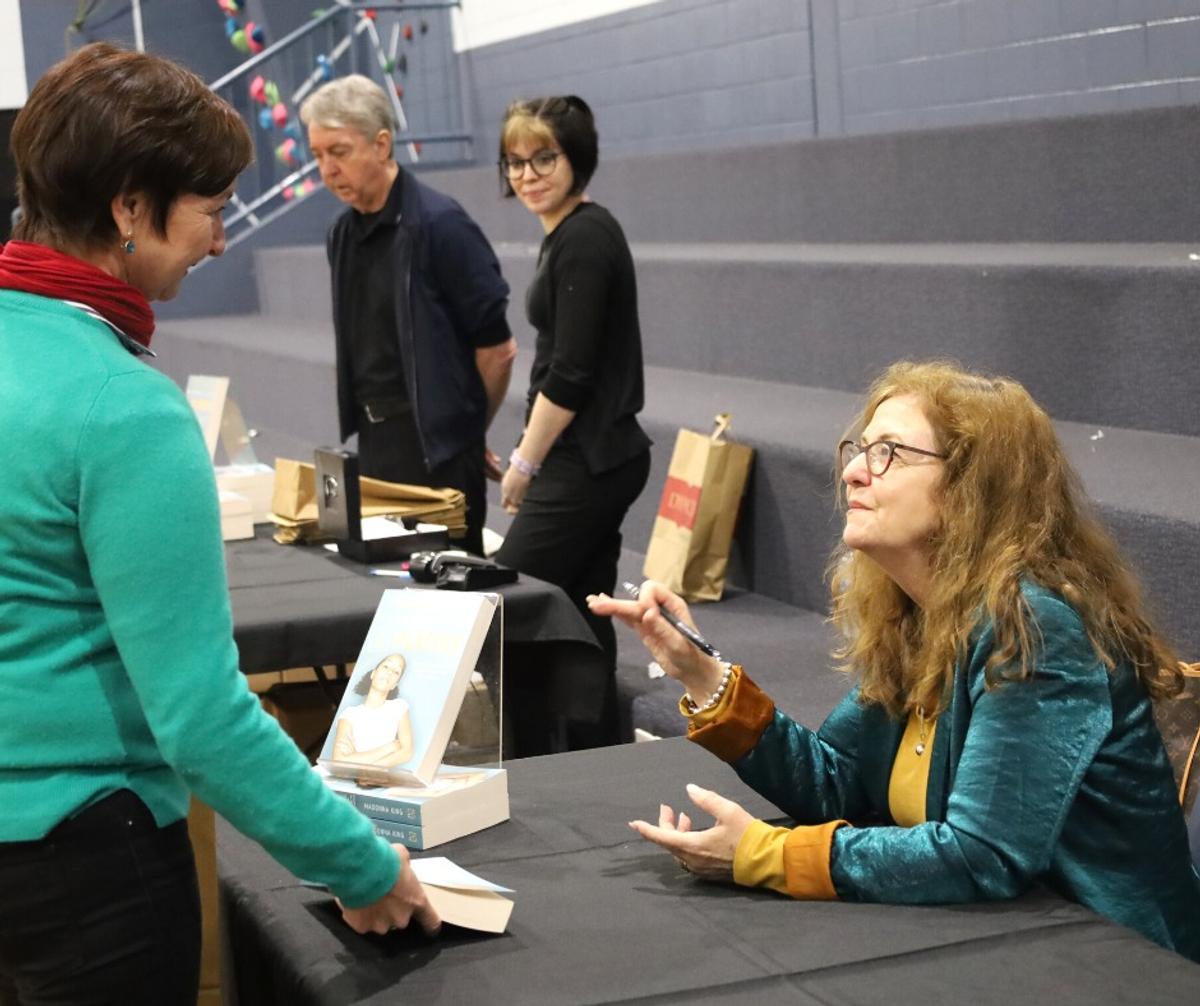Deputy Principal
Student Development and Wellbeing - Kathy Dendy

Deputy Principal
Student Development and Wellbeing - Kathy Dendy


Journalist, social commentator, and mum, Madonna King, came to Mt A this week to share her insights with parents about teenage girls and how they think. I’d be lying if I said I wasn’t excited, given I have admired Madonna for some time, having read her books and seen her present before - and she didn’t disappoint! She gave voice to our young women, eloquently articulating some of the challenges they face, and provided some tips for parents and educators as to how we can go about ensuring the young women in our care find balance in their lives, whilst navigating teenage hood.
Madonna began her presentation by asking parents what attributes they would like to use to describe their daughters, and she book-ended the presentation by sagely advising that we don’t necessarily need to have remarkable fifteen-year-olds, but perhaps we should be focusing on what we want our daughters to be like when they are 25. Madonna’s point is: the life of a teenager is tough and, instead of wanting them to be remarkable now, it is important they have this time to fail, for it is failure that builds success and enables them to fly once the structures of school are gone.




Why is teenagerhood so tough? Madonna had many answers, based on research she conducted with more than 1000 sixteen-, seventeen-, and eighteen-year-olds, as well as a myriad of educational professionals, including principals, counsellors, and teachers. Let me briefly re-cap these for you.
Teenage girls face the disease Madonna calls comparison and, in talking with young women, Madonna says they are “brutal in their self-judgement”. Madonna went on to talk in some detail about mental health, which she says is the biggest challenge teenage girls face today, according to her conversations with them. Self-harm is on the rise, as are eating disorders, which Madonna says is a form of self-harm, and anxiety is becoming almost normalised. Madonna’s advice for parents around mental health is not to ignore it and, if needed, to seek professional help. She said it is important to name the issue even and to try any number of strategies for keeping calm, including exercise, meditation, playing with a pet, and crocheting among other things. (Yes, crocheting seems to have made a resurgence!)
Madonna also spoke about the academic pressure that teen girls experience and the importance of finding the appropriate academic pathway, which I think Mt A is very good at doing. She acknowledged that some students “roller skate through Years 10, 11, and 12, and some love the connections they make”, but for others it is like they are in mourning. How can we help with this? By teaching our girls to celebrate their achievements as opposed to asking themselves why they didn’t do better, according to Madonna. She also gave very practical advice around the importance of our teen girls learning how to manage their time. Madonna made the very resounding point also about how impacting COVID has been on this generation, and that we must look at ways of “gifting back the confidence and connectedness that COVID has stolen” from our teen girls.
No presentation is complete without some words of wisdom about social media and Madonna had quite a lot to say about how much time teen girls spend screen-scrolling – on average three hours a day. She also opened our eyes to the 'rate-a-date' phenomenon and dark ads, and warned that our girls aren’t just comparing themselves to their friends, but to girls globally. Madonna suggested some things for parents to try including having their daughters put boundaries around their social media use and not responding immediately; for example: creating mindful moments during which phones don’t play a part; collectively bargaining with friends around time spent on social media (which takes away the FOMO, or Fear Of Missing Out); and waiting ten minutes before picking up one’s mobile in the morning. I wonder if any of us could benefit from these tips too!
Madonna also spoke about alcohol and how alcohol consumption affects females differently from males, given the liver fully develops later in girls. She also addressed the tricky topic of gender and explained that there are a number of young people who are bi-curious. I was interested by her statement that we encourage young people to run their own race but ask them to conform to so many things. In this space, Madonna advised that parents need to listen, and that parents, peers, and school are very influential when it comes to issues around gender.
In closing, I do want to share some final words of wisdom from Madonna. She stated that younger girls often put a ceiling on themselves and this could very well be as a result of role-modelling from significant adults in their lives. She encouraged us to teach our girls to be elastic bands and to practise stretching themselves. I love this metaphor! Interestingly, she spoke about the fact that there is such a thing as a dumb phone, as opposed to a smart phone – not every young person needs a smart phone! She also shared a tip that she practises with her own children, and that is they are only allowed to take a photo of themselves on their own mobile phone – a smart way of reducing the risk of images being shared.
Lastly, Madonna stressed that teen girls are craving mentors who can help them navigate this tricky time. This could be an older cousin, for example. She urged that parents focus on responding, not reacting, by way of containing our emotions. She wrapped up by highlighting the importance of growing the independence of our teen girls, which includes teaching them about the big topics like coercive control, as well as the more practical life skills, including how to administer first aid, how to manage a credit card, how to cook ten basic meals, and how to listen to others, among other things.
This presentation by Madonna was gold and a great initiative of the P&FSN, whom I want to acknowledge. Having presentations like this one, and sharing with each other the pearls of wisdom we pick up, helps us to understand our teen girls better and feel more confident in knowing how to support them in navigating the tricky time that is teenagerhood.